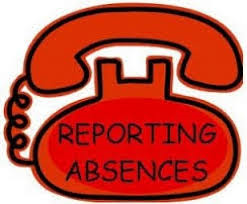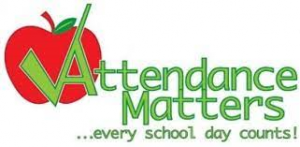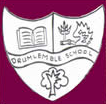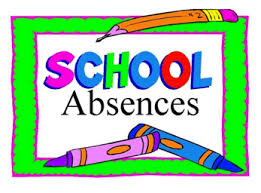Parent Involvement
We communicate regularly to all parents/carers through school newsletters and messages. For specific activities and events involving groups or classes we issue separate letters/messages. In common with other Argyll and Bute schools we also use a communication system called Groupcall / Messenger 5 to communicate with parents/carers by email, app notification or text.
We have an established Facebook page on which we share information about school events and learning activities and celebrate school achievements.
Our school website also provides up-to-date information about the school.
We hold Parent / Teacher Appointment sessions to give parents/carers the opportunity to meet their child’s teacher and to see their child’s work. These sessions also link to the Pupil Progress Reports that we issue in the Summer Term.
We use the Seesaw website and app to share children’s learning with all parents on a regular basis to keep them up to date on their child’s progress.
Argyll & Bute’s Parental Engagement Strategy may be viewed at:
https://www.argyll-bute.gov.uk/sites/default/files/parental_engagement_strategy_final_feb_19.pdf
Parent Councils are now established in all Argyll & Bute primary and secondary schools. The Scottish Schools (Parental Involvement) Act 2006 recognises the vital role that parents/carers play in supporting their children’s learning.
The basic principle underpinning the Act is the desire to have children become more ‘confident learners’ through closer working between each family and school. It is anticipated that this can be done in three ways.
These are: –
1. Learning at Home: direct parental involvement in the child’s learning at home and in the community.
2. Home/School Partnership: closer working partnerships between parents/carers and the school – such partnerships being essential to ensure that the child gets maximum benefit from their school experiences.
3. Parental Representation: Parent Councils will be parent/carer led and school supported, with all parents/carers being automatic members of the ‘Parent Forum’ and the Parent Council representing their views.
You can find out more about your Parent Council by contacting the Head Teacher.
Parent Council Members 2024/25
Parent Council August 2024 | |
Office Bearer/Committee member | Name |
Chairperson | Susan Graham |
Secretary | Susan Graham (temporary) |
Treasurer | Meg Smith |
Head Teacher | Richard Long |
Principal Teacher | Gillian McAllister |
Committee Member | Jo-Anne Martin |
Committee Member | Annette McMillan |
Committee Member | Elaine Ross |
Committee Member | Karen Connor |
Welcome to the homework page. We all know that homework can be somewhat trying at times and wish to share this page with you in the hope that some of the information helps.
Above all remember that communication is the key to success. If homework is causing a problem then let your child’s teacher know – write a note on the homework page or send a note in to school in the morning. A teacher would rather have the homework not completed than have a child feeling under pressure.


Top Tips for a positive homework environment
1. TIME – know when it is time to do homework. It could be the same time every day i.e. after snack, before swimming or whatever as long as there is an agreed expectation.
2. LOCATION – This is the best area for your child, some may wish to be alone in their bedroom others may wish to be at the bustle of the kitchen table – let your child decide and if it works for them why not listen.
3. RESOURCES – have all resources and materials in a place all together so that there is less distraction /time wasting finding a rubber, glue etc.
4. ELIMINATE TV.
5. MUSIC – there are several studies that encourage music while working as it provides a more relaxed atmosphere.
6. PRAISE EFFORT – e.g. that is the neatest word you have written
7. SCHEDULE – set up a schedule for topic work. Sit down with your child and agree times when you can fit in the work. If they are involved in the plan they are more likely to co-operate when it comes time.
8. ENCOURAGE – encourage them to check their own work.
Read, Write, Count

Read, Write, Count offers parents tips, ideas and activities that will help get children off to a great start in life.

We are committed to providing healthy, nutritious, good value meal options to pupils in our primary school. The lunch is a two course menu with a choice of main meal, and will be either a starter and a main course, or a main course and a dessert. Water, and a selection of bread and salad are also provided every day. The menu runs on a three week cycle, so that there is plenty of choice for pupils.
You can find a copy of this on the Argyll and Bute website. Primary menu 2024 2 choice v2 (argyll-bute.gov.uk)rimary school meals menu | Argyll and Bute Council (argyll-bute.gov.uk)
All pupils in the ELC and Primary 1-5 are entitled to a free school meal. Parents do not have to register for this; all pupils will receive this meal automatically. Unless receiving free school meals, the cost for a two course meal for P6-7 children is £2.30 a day water and milk is available free of charge with lunch.


Meals are ordered and paid for via our iPayment system, account details will be provided to you. https://www.ipayimpact.co.uk
Please see the links below for more information on school meals and to find out if your child qualifies for free school meals.
Please visit the Argyll and Bute website for further information on school meals, on-line payments and application for Free School Meals. School meals | Argyll and Bute Council (argyll-bute.gov.uk)
Parents/carers are responsible for ensuring that their children attend school regularly and arrive on time. They are also responsible for ensuring the safety of their children on their journeys to and from school.
Regular and punctual attendance is linked closely to achievement and school staff wish to work with parents/carers to ensure that children can reach their full potential. The school is required by law to maintain an accurate record of the attendance and absence of each pupil and parents/carers are requested to assist in this process by keeping the school informed if their child is to be absent for any reason.
It is important to note that if a child does not arrive at school and there is no reasonable explanation provided for his/her absence then members of staff will be required to ascertain the whereabouts and safety of the individual child. In order to avoid causing unnecessary concern for staff and parents/carers, the importance of good communication between home and school cannot be over-emphasised.
Parents/carers are asked to assist school staff in the manner detailed below.
Unplanned absence


In the case of an unplanned absence, e.g. illness, it is essential that parents contact the school to let us know that your child will not be in school and the reason for his/her absence. Please telephone the school between 8.45 and 9.00 am on the morning of the first day of the pupil’s absence and subsequent mornings until your child returns to school.
Planned Absence
Parents/carers are encouraged not to arrange family holidays during term time but it is realised that, in exceptional circumstances, this is unavoidable. In such cases, parents/carers are asked to seek permission from the Head Teacher and provide information of the dates when the child is to be absent from the school in good time.
Except in cases of emergency, planned appointments for children to attend the dentist or doctor should be made outwith the school day. Parents/carers should contact the school in advance either by telephone or in writing giving details of the planned absence.
In the interests of pupils’ safety, parents will be contacted by the school by telephone if a child is absent and no notification has been given.
Contact Details
Parents/carers are asked to ensure that telephone contact numbers – home, work and emergency contact(s) are kept up-to-date and are numbers at which a response can be obtained in all normal circumstances.


You can contact your school health staff at:
Children and Families Health Team
Argyll and Bute Health and Social Care Partnership Health Centre
Stewart Road, Campbeltown PA28 6AL TEL: 01586 865813
Administration of medicines
Many pupils will, at some time in their school careers, need to take medication. For the vast majority this will be a short-term requirement, with pupils simply finishing a course of medication which has been prescribed for them by their family doctor. Wherever possible, parents/carers are requested to ask for GP prescriptions which can be administered outwith the school day, i.e. in the morning and evening.
 However, pupils may have medical conditions such as asthma or diabetes which may require long-term support and, if their conditions are not properly managed by taking regular medication in school, their access to education could be limited. In addition, some children have conditions which may require occasional staff intervention, e.g. severe allergic conditions such as anaphylaxis. Pupils with such conditions are regarded as having health care needs but, notwithstanding these, the vast majority of children with such needs are able to attend school regularly and, with some support from the school staff, are able to take part in most normal school activities.
However, pupils may have medical conditions such as asthma or diabetes which may require long-term support and, if their conditions are not properly managed by taking regular medication in school, their access to education could be limited. In addition, some children have conditions which may require occasional staff intervention, e.g. severe allergic conditions such as anaphylaxis. Pupils with such conditions are regarded as having health care needs but, notwithstanding these, the vast majority of children with such needs are able to attend school regularly and, with some support from the school staff, are able to take part in most normal school activities.
In any of these circumstances parents/carers (or young people themselves if they are over the age of 16) should discuss the matter with school staff and agree the arrangements which will be made to provide support for the pupil. A written request form must be completed in advance when any medication is to be administered or taken in school.
any of these circumstances parents/carers (or young people themselves if they are over the age of 16) should discuss the matter with school staff and agree the arrangements which will be made to provide support for the pupil. A written request form must be completed in advance when any medication is to be administered or taken in school.
Skin Protection
Your child’s skin may be affected by exposure to the sun, especially over the lunchtime period and other outdoor activities. It is a good idea for your child to wear a sun hat. If they have one, please put it in their school bag.
You should ensure your child has sunblock applied prior to arriving at school in periods of hot weather and if you wish them to have further applications at lunchtime then you should send in sun-cream/block and we can help your child apply it.
Face painting is occasionally carried out within schools. Parents will be informed when this activity is being planned.





